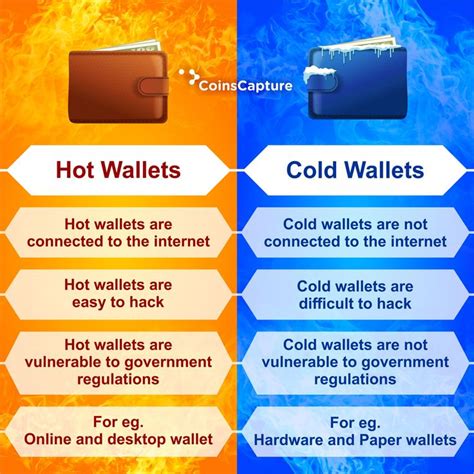- سبدخرید خالی است.
- ادامه خرید
Cold Wallet Vs. Hot Wallet: Security Considerations
cold wallets vs. Hot Wallets: Security Considerations for Cryptocurrency Investors
As the adoption of cryptocurrencies continues to grow, so does the importance of secure and reliable storage solutions for these digital assets. Two Popular Options for Fire and Managing Cryptocurrency Holdings Are Cold Wallets (also Known As Hardware Wallets) and Hot Wallets. In this article, we’ll delve into the differentences between thesis two approaches, exploring security consultations and help you make an informed decision.
What is a cold wallet?
A Cold Wallet is a physical device that stores and protects cryptocurrencies offline, away from internet connectivity. These devices are designed to be secure, resistant to hacking and unauthorized access. Cold wallets typically consistent or:
- A Cold Storage Device (E.G., Ledger or Trezor Wallets)
- A Pair of Physical Keys or Signatures
- Offline encryption
Cold wallets sacrifice Several Advantages, Including:
* Security: No Internet Connection Means No Single Point of Failure.
* Protection from hacking and unauthorized access: cold wallets are designed to be resistant to cyber attacks and unauthorized access attempts.
Easy Recovery in Case of Loss Or Theft: If your cold wallet is Lost or Stolen, you can recover your assets use the combination or password stored on the device.
What is a hot wallet?
A hot wallet is a digital storage solution that uses software and internet connectivity to store and manage cryptocurrency holdings. These Solutions are designed for users who require easy access to their funds without compromising security. Hot Wallets Typically Consist or:
- A Computer or Laptop Running A Secure Software Program
- Internet Connection
- User Authentication Credentials (E.G., Username, Password)
Hot Wallets Offer Several Advantages, Including:
* Convenience: No need to worry about malfunction and managing large amounts of cryptocurrency offline.
* Easy Access: you can log in from anywhere with an internet connection using your preferred method.
However, hot wallets also have some security risks, including:
* Hacking Vulnerability:

Online Connections Make You More Vulnerable to Cyber Attacks.
Data theft or loss: if your computer or laptop is lost or stolen, your assets may be at risk of being stolen.
* Password Security Conerns: Weak passwords can Compromise the Security of your hot wallet account.
Security Considerations
When deciding between a cold wallet and a hot wallet, Consider the Following Security Factors:
- Offline Storage vs. Online Access: if you prioritize security and want to store all your cryptocurrency offline, a cold wallet is the way to go.
- Data Backup and Recovery: Ensure you have a plan in place for Securely Data on an external device or cloud storage service.
- Internet Connectivity Risks: Consider How Vulnerable You Are To Online Threats If Using A Hot Wallet.
- Password Security: Choose Strong, Unique Passwords for Both Your Cold Wallet (Or Hardware Wallet) and Any Other Accounts That Require Authentication.
Best practices
Regardless of Whether you Choose A Cold wallet or a hot wallet:
- use a reputable provider: Research and Select A Reliable Provider to Ensure The Security of Your Assets.
- keep software up-to-date: Regularly update your software and operating system to prevent vulnerabilities.
- Monitor Accounts Regularly: Keep an Eye on your cryptocurrency balances, transactions, and account activity.
- Store Cold wallets Securely: Use Physical Locks, Passwords, OR Biometric Authentication to Protect Your Cold Wallets.
Conclusion
The Choice Between a cold wallet and a hot wallet Depends on your individual security needs and comfort level with malfunction digital assets offline.
